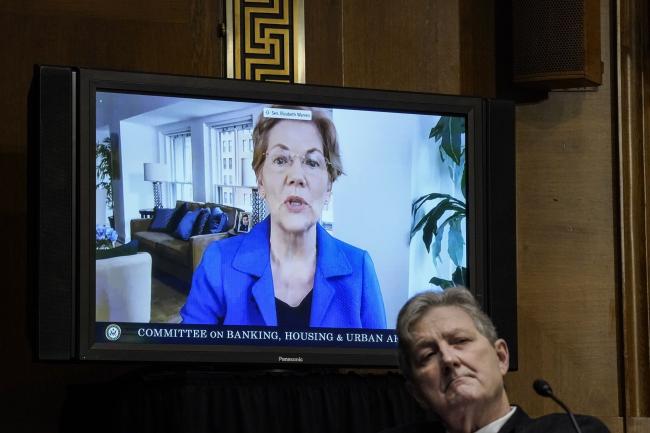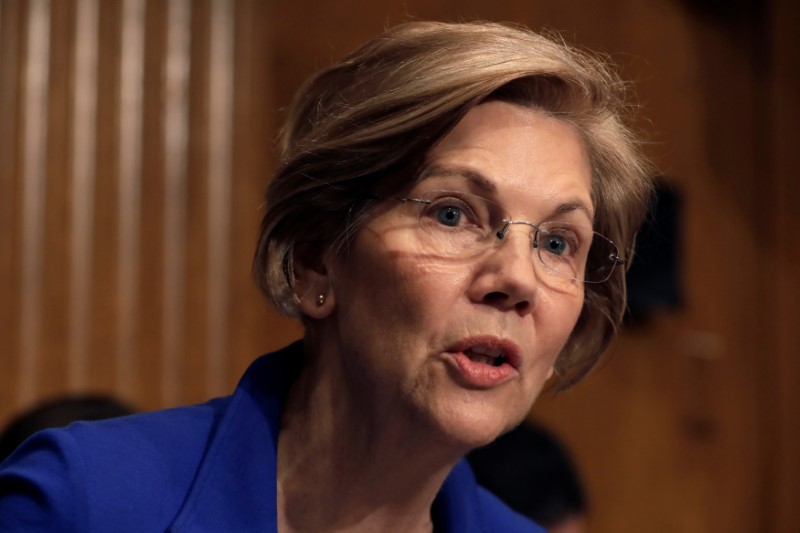(Bloomberg) -- Senator Elizabeth Warren on Thursday pressed Federal Reserve Chair Jerome Powell to use a broader range of tools to lessen racial economic disparities, in a potential preview of the pressures that could hit the central bank if Joe Biden becomes president.
During a Senate Banking Committee hearing Thursday, the Massachusetts Democrat asked Powell what the Fed is doing to reduce inequality along economic lines in the U.S. Powell pointed to the central bank’s new policy framework, which emphasizes an inclusive goal of maximum employment and said policy makers have been “outspoken on our commitment to diversity and racial justice.”
That failed to mollify Warren, who told Powell that “words aren’t good enough on this issue.” The Fed should more stringently look at lending to Black borrowers when assessing bank mergers, implement systems for instant payments in banking and use its Municipal Liquidity Facility to prevent layoffs in state and local governments, she said.
Read more: Biden Needs Fed’s Powell on Board to Fix Racial Wealth Gap
Americans of color, particularly women, have been disproportionately impacted by the coronavirus crisis. The Black unemployment rate is now nearly double that of White Americans’, after falling to an all-time low before the crisis.
The Fed announced its new policy framework last month, after spending more than a year reviewing its practices. Lawmakers, progressive organizations and presidential candidate Joe Biden have called on the central bank to pay more attention to racial disparities.
Warren, along with other Democratic senators, has introduced a bill that would amend the Federal Reserve Act and require the central bank to specifically work to decrease and eliminate gaps in employment, wages, wealth and access to credit.
The Fed earlier this week released a proposal for restructuring the Community Reinvestment Act, the 1970s-era anti-redlining law, breaking from a plan by the Office of the Comptroller of the Currency, which was criticized for not doing enough to aid low-income communities. The Fed has also disclosed its plans for a real-time payment system, but it’s not scheduled to be ready until at least early 2023.
Warren, who Democratic presidential candidate Joe Biden considered for vice president, will have an influential role in his administration if he wins in November. Since sealing the Democrats’ nomination in August, Biden has been working to navigate the tensions between the party’s liberal wing, lend by Warren, and moderates.
The 71-year-old senator is widely seen as a potential choice for Biden to lead the Treasury Department, among other candidates. The Treasury secretary is usually an administration’s chief liaison to the Fed, traditionally holding weekly lunches together and playing a central role in vetting presidential appointments to the central bank.
The Fed’s own ranks of economists, who publish influential research and advise the Board of Governors and rate-setting Federal Open Market Committee, is lacking in diversity. Only about a quarter of the organization’s 820 economists are women, and just above a quarter are minorities.
©2020 Bloomberg L.P.

